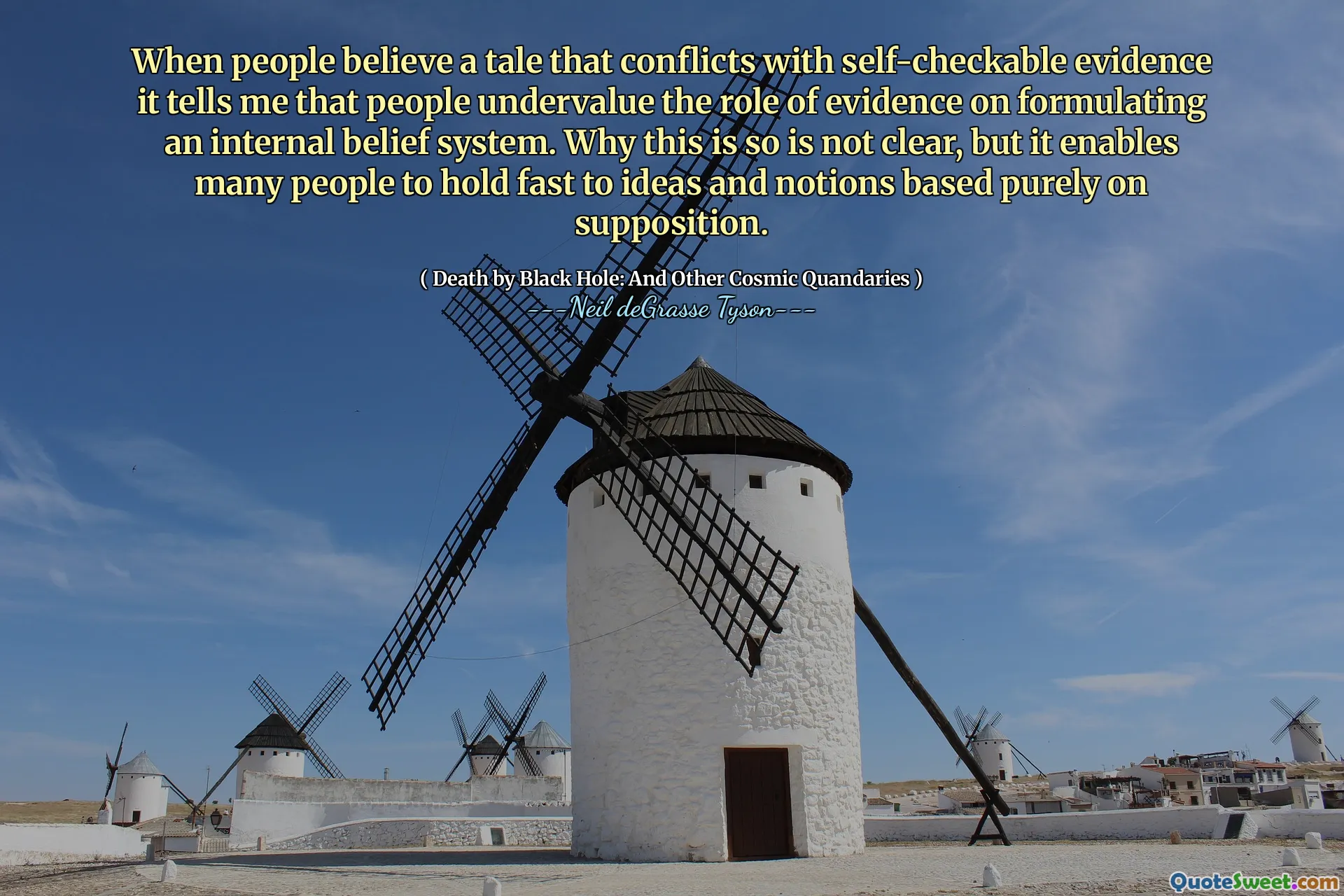
When people believe a tale that conflicts with self-checkable evidence it tells me that people undervalue the role of evidence on formulating an internal belief system. Why this is so is not clear, but it enables many people to hold fast to ideas and notions based purely on supposition.
This quote highlights a profound aspect of human cognition: the tendency to cling to internal beliefs even when faced with objective evidence that contradicts them. It underscores a common psychological phenomenon where personal biases, emotional attachments, or ingrained notions override logical reasoning and factual data. Such behavior can be attributed to various factors, including cognitive dissonance, the desire for cognitive consistency, social influences, or the comfort of familiar beliefs. When individuals prioritize internal coherence over factual accuracy, it creates barriers to critical thinking and rational discourse. This phenomenon is especially relevant in today’s information landscape, where misinformation and confirmation bias can thrive because of our natural inclinations to seek confirming evidence rather than challenging our pre-existing beliefs. Understanding this tendency is crucial for fostering more open-minded and evidence-based thinking in society. It also serves as a reminder of the importance of humility in our relation to knowledge; recognizing that our beliefs may not always be supported by objective evidence can inspire a more inquisitive and flexible attitude towards understanding the world. The challenge lies in balancing personal convictions with the willingness to update them in light of new, credible information. Awareness of this cognitive bias may help improve decision-making at both individual and collective levels, promoting a culture that values evidence and encourages the revision of beliefs when warranted. Ultimately, this quote calls for reflection on our own susceptibility to supposition and the importance of cultivating a skeptic’s mindset grounded in evidence rather than assumption.






